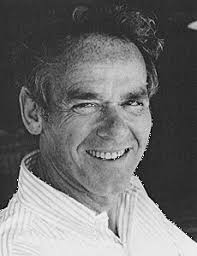
Bill Thetford worked with Helen Schucman, the scribe of A Course In Miracles. He was her supervisor in the Medical Psychology Department at Columbia University's College of Physicians and Surgeons, and was the individual who hired her.
He also was the one to whom she came when she began to hear the Voice of the Course. As such, he was the first student of the Course, if you discount Helen, who was struggling to get the messages down correctly.
The Interview continues. This is Part Five. Please see the links at the bottom of this posting.
NR: You say the Course is ecumenical, yet the Course is decidedly Christian in nature, using the Christian framework of Father, Son, and Holy Spirit.
WT: That's true. The Course does use Christian terminology butat the same time it conveys universal spiritual truths, which is perhaps why people of all faiths can find it of value. I think the course states it very well when it says, "A universal theology is impossible, but a universal experience is not only possible but necessary." Shortly after we began transcribing the material, I started reading rather widely in the mystical literature of the world. One of the early writers who made a deep impression on me was Vivekananda, in his exposition of the Vedanta philosophy of India. He was a disciple of Ramakrishna who in the late 1800's and in the earlypart of this century founded a number of Ramakrishna ashrams and teaching centers in this country. The Vedanta Advaita philosophy as expounded by Vivekananda seemed to have some striking similarities to the teachings of the Course, even though the context and the language are different. At the time I remember thinking that the Course could be described as a form of Christian Vedanta.
Students of Buddhism tell me that the similarities between the Course and Buddhist teachings are very striking.
Interestingly too, is the fact that many people associated with the Course have come from Jewish backgrounds, and have found it extraordinarily meaningful and helpful despite the Christian terminology.
So I've been impressed with how ecumenical the Course is, andthat its purpose is not to increase our sense of separation but to bring people together. And I see this happening all over with hundreds of study groups that are made up of people from all walks and
more
Part 4 of the Interview, Part 3, Part 2, Beginning
No comments:
Post a Comment